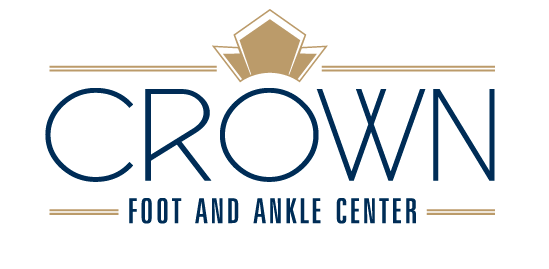Achilles Tendonitis Causes & Treatment
Achilles Tendonitis is the medical name for pain and inflammation in the Achilles tendon. It is diagnosed by a history and physical exam of a patient who complains of pain at the back of the ankle. This pain often accompanies walking and/or running. The more intense or frequent the activity, the more pain is felt. Achilles tendonitis can be severe in some cases prohibiting the patient from running or walking comfortably.
What Causes Achilles Tendonitis
You can feel your Achilles tendon on the back of your ankle. It is the largest tendon in the body and feels like a large pipe-like structure attaching the foot to the ankle. The Achilles tendon attaches the gastrocnemius and soleus muscles in the calf to the calcaneus bone in the heel. Because these muscles help balance the body while standing and give momentum to the body when running or jumping, the Achilles tendon is under a large amount of stress. This can result in injury to the Achilles tendon and often results in Achilles tendonitis. It is often seen in older adults who are active in sports as the tendon becomes more rigid and losses some of it’s strength as we age. It can also occur in athletic teens that participate in running and jumping, tennis, track, football, soccer and other sports, though this is not as common.
 Physical Examination Of The Achilles Tendon
Physical Examination Of The Achilles Tendon
Your podiatrist will examine your Achilles tendon to see if it is tender to touch or has visible or internal irregularities. Achilles tendonitis can cause the tendon to be thick in some places or a small bump may be evident. It is often accompanied with swelling around the tendon. The patient with Achilles tendonitis will often limp when not wearing heeled shoes and will complain of having more pain when doing running and jumping activities. An X-ray will not show inflammation around the Achilles tendon but may be used to rule out other injuries.
Treatment
Surgery is rarely indicated for Achilles tendonitis unless the tendon has ruptured or is associated with chronic pain. Achilles tendonitis can be treated with a variety of treatments and often responds well when diagnosed early. Your podiatrist will often treat the Achilles tendonitis by placing heel lifts inside the affected person’s shoes. The patient must then steer clear of certain activities and walking barefoot or in shoes with small heels. Drugs that help with inflammation, such as Ibuprofen or other over the counter medications may be prescribed for inflammation around the tendon. Icing may also be used to decrease inflammation and pain in the tendon area. Stretching exercises may also be used to loosen the calf muscles and tendon.
Prognosis
As the tendon begins to feel better, your podiatrist will suggest you begin returning to normal activities and gradually including your regular running and jumping activities. If the initial therapy isn’t working after a few weeks, the podiatrist will often prescribe physical therapy and/or orthotics during athletic activities and walking to help the tendon heal. If the podiatrist suspects a partial or complete rupture of the tendon, an MRI may be necessary. Spurs on the tendon are also common. When a partial tear is indicated, a cast is often used to protect the tendon while it heals. This can takes several weeks or months for the tendon to heel. Patients must return to activities slowly as it is common to re-injure your Achilles tendon if you resume activities too soon. Your podiatrist will help you determine the best treatment options and when normal activities are safe to resume.
Proactive Treatment For Achilles Tendonitis at Crown Foot and Ankle
Crown Foot and Ankle can help with diagnosis, treatment and ongoing care of your Achilles tendon. We offer special services and treatments designed to relieve pain and stress on your tendon to help prevent and cure Achilles Tendonitis. If you have questions or would like to schedule an exam, call Crown Foot and Ankle in Lexington or Danville Kentucky.
More information: https://www.nlm.nih.gov/medlineplus/ency/article/001072.htm

